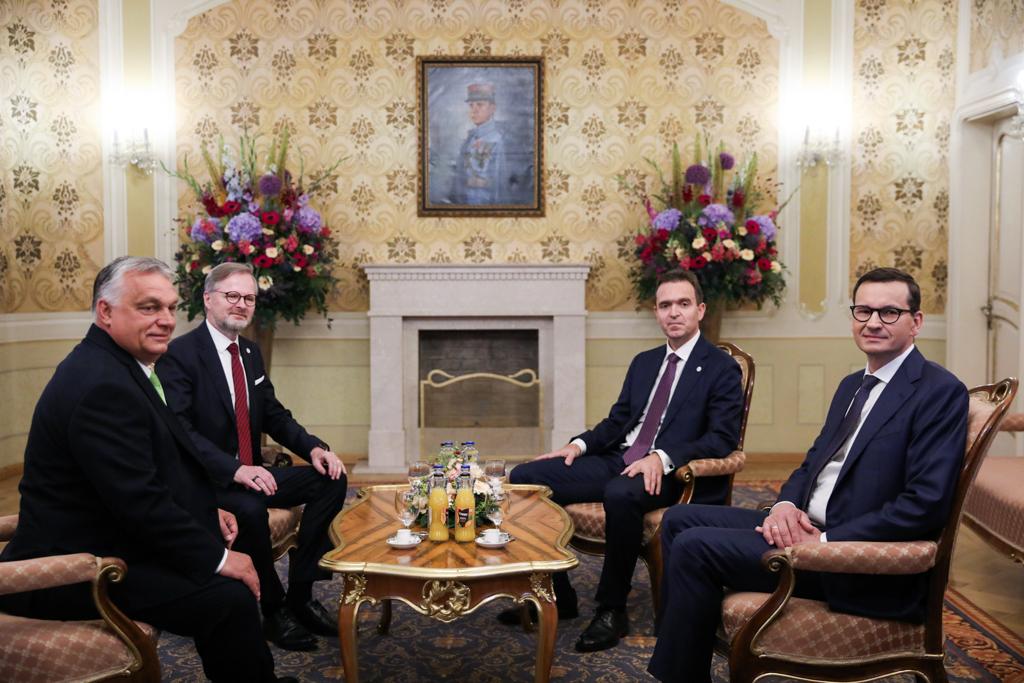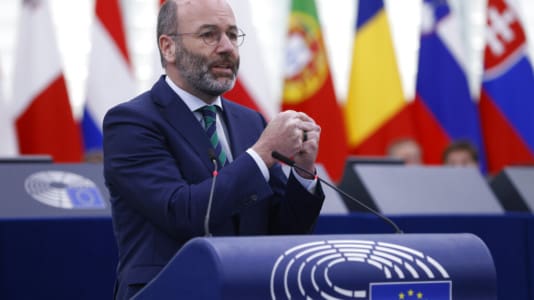A lot of questions have been asked about the state of the Visegrád Four (V4) alliance, consisting of Poland, Czechia, Slovakia and Hungary. The war was a major problem for the V4, as Hungary adopted a very different position from the rest of the group. Czechia and Slovakia have been through a period of political turbulence, with attitudes toward the war becoming an internal political issue.
This is why the V4 summit in Bratislava on June 26 was awaited with some apprehension. What emerged from the summit was a clear signal that despite the shocks of the past year, the V4 group is once again arriving at some common positions.
This was not the case, of course, in terms of the war. Poland, Czechia and Slovakia concentrated on aid for Ukraine. Meanwhile, Viktor Orbán said that although he wanted to work with the EU, Hungary had its own foreign policy, which it was not prepared to sacrifice, and that his country would “continue to seek peace.”
There were differences regarding energy policy as well, where Hungary expressed no enthusiasm for becoming less dependent on Russian fossil fuels. However, the four prime ministers agreed that climate policies must not be implemented to harm industry but for and with industry. Polish Prime Minister Mateusz Morawiecki added that a transformation that is too abrupt could be damaging to the region by forcing some companies to shift their production out of Europe.
Center stage was the issue of migration. Slovak Prime Minister Ludovit Odor said that the EU has to find a compromise on migration, but that it has to be one in which the external borders of the EU are protected. He added that the whole group rejected the idea of compulsory quotas.
According to Hungarian Prime Minister Viktor Orbán, the problem is solvable if the EU adopts the Hungarian policy of asylum seekers filing their applications on the border and waiting for them to be considered. He also said that the numbers proposed for relocation were very low and would not solve the problem.
Czech Prime Minister Petr Fiala said that relocation was no answer and that illegal migrants needed to return to their countries of origin. Polish Prime Minister Morawiecki felt that the V4 states had stood the test of helping refugees fleeing war. However, they should not be helping to facilitate human trafficking and terrorist organizations, which is why the V4 countries were against quotas of migrants for relocation.
Morawiecki added that migration policy is a key component of a state’s sovereignty and that a state must be able to protect its own borders. He said that Poland had learned that lesson following Belarus’ attempts to wage hybrid warfare via the facilitation of illegal migration across Poland’s border.
However, despite agreement on the migration pact at the V4 summit, it was not clear whether the V4 states would produce a joint position at the coming EU summit. More importantly, in the Council of the European Union, only Poland and Hungary actually voted against the pact.
The four still seem to differ on tactics. The Germans are applying strong pressure and do not hide that the migration pact is in their interests. Czechia and Slovakia may thus wish to avoid a confrontation over the matter, thinking that they will easily be able to benefit from the proposed opt-out for countries that have already been taking in refugees.






